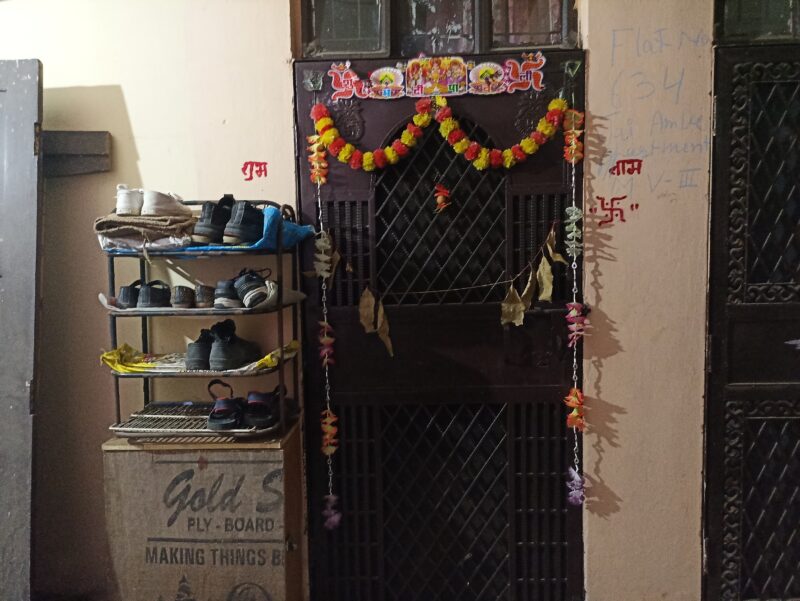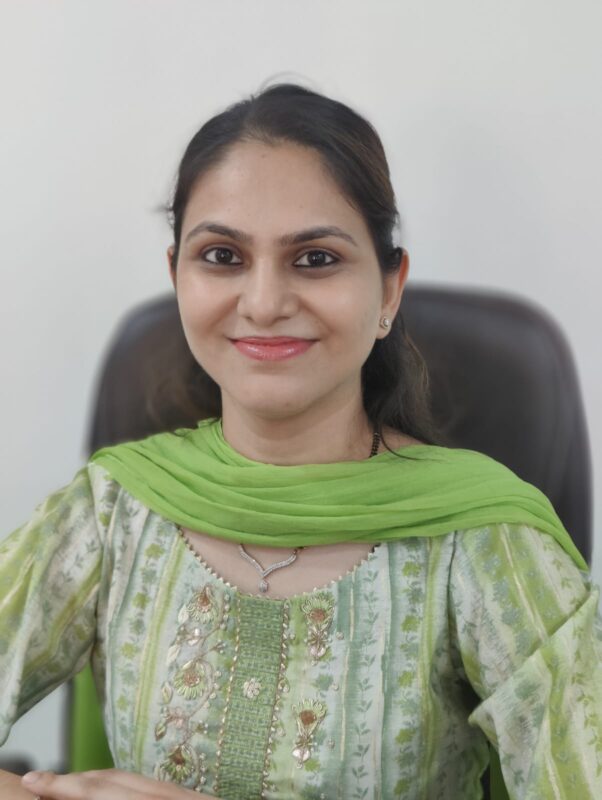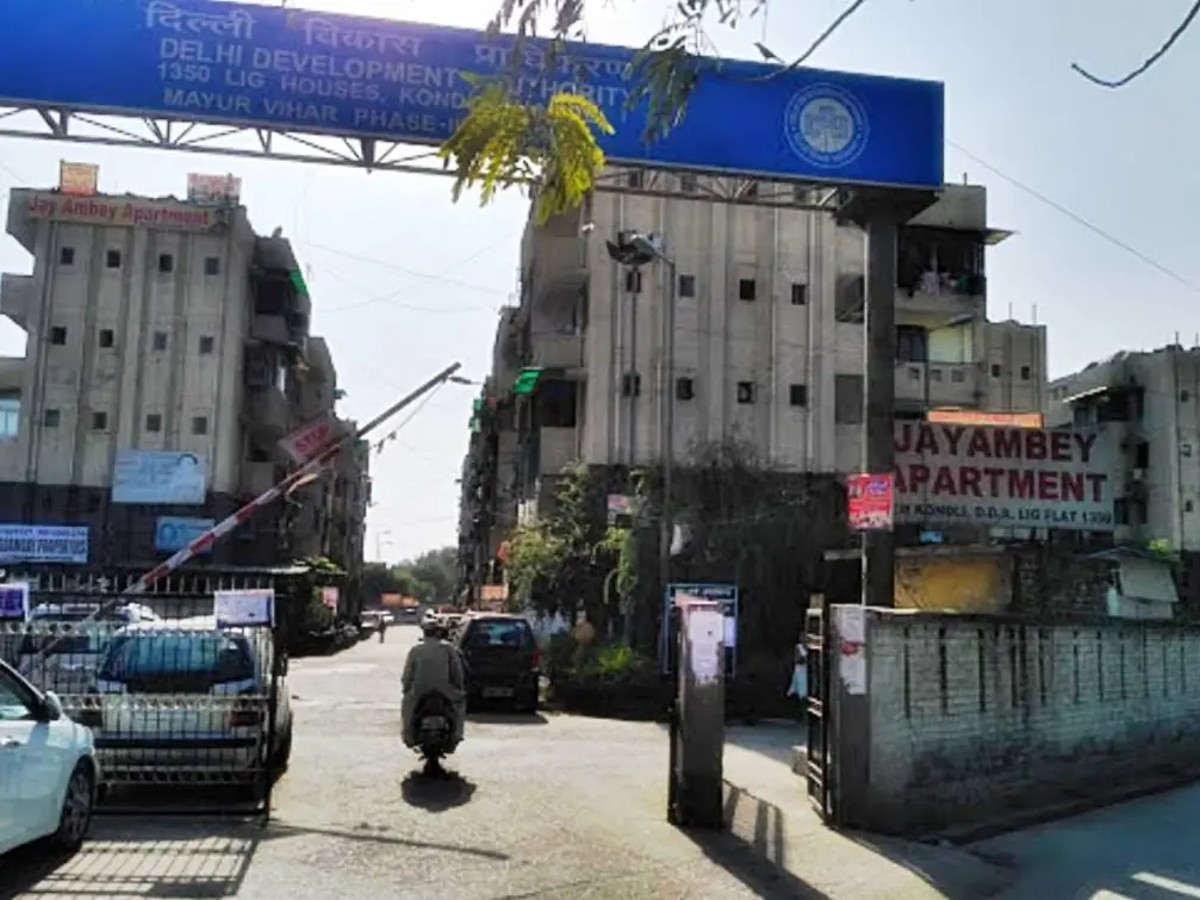In a recent incident in the Capital, a 20-year-old girl had thrown her new-born out of the washroom window of her third-floor home in east Delhi’s Kondli locality immediately after giving birth.
At 9.30 am on January 2, sanitation workers were cleaning the ground floor of the apartments she was staying in when they saw something falling on the road. People rushed to it, and when they removed the white cloth in which it was wrapped, they discovered a child in it.
The child was declared brought dead by the doctors at the Metro Hospital in Noida Sector-12, and the matter was reported to the New Ashok Nagar police station.
The police searched the apartment building, from where the child was suspected to have been dumped. When the police discovered blood in a flat’s dustbin, they spoke to the residents.
Confession
Priya confessed to her crime after being questioned thoroughly.
Priya, who lived with her parents and a younger brother and a sister, used to work in a private firm in Noida and had moved to the Jay Ambey Apartments in 2020.
She was unmarried. According to her statement to the police, she decided to get rid of her baby after her boyfriend, who had fathered the child, refused to marry her and she feared getting stigmatised in the society.
The incident has caused consternation in the neighbourhood. Some neighbours say that if she had sought help, they would have talked her out of the decision of such a drastic step. Others say that the step she took was a result of lack of education.
“Priya is a good girl. I never saw her doing anything mischievous. The family is also very nice. We didn’t talk on a regular basis, but living next door gives you an idea of people. I only wish she had asked for my assistance,” said a neighbour who did not want to be identified.
“With the right advice, she would have aborted the child in time. I would have taken her to the doctors to help her through the difficult phase.”
The neighbour agreed that Priya was a victim of fear of being chastised and isolated by the society.
“What she did was wrong, but she was only 20 years old, and some people in our society still look down upon unmarried and single mothers, who become targets of taunts and comments. Pregnancy before marriage is considered a sin, and raising a child alone is extremely difficult, as the world never stops saying that a child’s life is meaningless without a father,” she added.
“In the midst of all the shame and discrimination, it is extremely difficult for women to deal with unwanted or pre-marital pregnancies. The discrimination needs to end, otherwise such incidents will keep happening.”
The impact
Dharmendra Shah, who lives in the same apartment building, told Patriot, “The incident has instilled fear in our minds. We also have young children who go out for work, school and socialisation. We can’t always keep an eye on them, and recent events may frighten you as a parent.”
Shah added, “This incident, however, has forced us to reflect on how close we are to our children, whether we talk enough, and most importantly, whether our children trust us enough to come to us for help in situations like these.”
Shah felt that some of the recent incidents in the Capital have been quite horrific.
He recalled that Priya’s father pretended to assist the police in their search throughout the society even though it became quite clear later that he was aware of the incident.
“This clearly demonstrates lack of support for the girl, and that the parents themselves believed that the girl had done wrong. It also demonstrates the amount of pressure the girl faced from the start,” said Shah further.
Kamlesh, another resident of Jay Ambey Apartments, responded to Priya’s statement to police about societal pressure forcing her, saying,
“No one cares enough for the traumatised. No one has that amount of time. Everyone already has a lot on their plate. [However, people need to realise that] We are not living in a village with panchayats, but in a city. Everything would have returned to normal after a few days.”
He went on to say that people in the society don’t know each other much, so they wouldn’t have cared about Priya’s unwanted pregnancy. Kamlesh has been living in the society for 12 years and knows no more than 20 people in the society.
“It is just the family that is worried about what will happen or who will marry our girl. Lack of education as well as backward thinking has destroyed the 20-year-old’s life and also taken the life of a new-born baby,” said Kamlesh further.

Psychological problems
Interestingly, none of the residents in the neighbourhood seemed to know or talk about the psychological traumas one goes through during the delivery of a child.
“Married or unmarried, whenever a woman gets pregnant, she experiences so many changes, both physical and mental, that they make her susceptible to mental health issues and sometimes even severe depression,” said Dr Harpreet Kaur, a psychiatrist, to Patriot.
Kaur went on to say that postpartum depression after childbirth, also known as postnatal blues, is very common but relatively unknown in our country.
“Every second woman experiences it, but the issue is not given the attention it deserves,” she added.

“All of this, however, is easily diagnosed and can be treated with the help of medication and emotional support. However, if left untreated, the condition progresses to the point where the mother becomes extremely ill and it affects the overall development and bond between the mother and the child, especially in the first few formative months. These can sometimes lead to suicidal thoughts or forming the illusion that the child is in extreme pain and the only way to relieve the pain is by getting rid of the children, as may have been the case with Priya,” she said further.
Kaur believed that Priya was perhaps suffering from depression that had gone unnoticed but which fuelled in her a desire to relieve the child of suffering.
“Nobody wants to kill a human that has been growing inside her for nine months. Also, the fact that the girl was only 20 years old and the feeling that her entire life was about to be destroyed could have played a role in her final decision,” added Kaur.
According to Kaur, “In most cases of prenatal blues, when the mother is asked, ‘Do you want to hurt your child?’ they all will say no. However, when asked, ‘If your child is hurting, do you want to relieve his pain?’ the patient will say yes.”
Kaur went on to say that the stigma surrounding unplanned pregnancy, especially without marriage, makes it difficult for people to come forward and speak out.
“It’s basic support that a woman requires before and during pregnancy. But because we as a society push people into such a dark corner that asking for basic emotional support at that time feels wrong to the mother, and she sometimes ends up taking extreme measures.”
What should one do in such situations?
“I believe that raising awareness is the most effective way of addressing the problem,” said Kaur, “because postnatal or antenatal depression does not necessitate a lot of high-end treatment. It’s just basic emotional support that can help the patient. But the fact that people are unaware of it is what makes it dangerous.”
According to her, many people believe that changes like mood swings, not eating, becoming irritated and not getting enough sleep are all normal during pregnancy, and they take it lightly, which is incorrect.
“In these situations, I believe the role of the gynaecologist increases because it is difficult for people to come to a psychiatrist. Gynaecologists are present throughout the process, so basic questions and help can save lives. It is basically the responsibility of all the doctors and counsellors to speak about it and most importantly be emotionally available to such patients,” she said further.
Priya is being monitored at the Lal Bahadur Shastri Hospital as she was in very bad condition at the time of delivery. Once discharged, she will be arrested, said the police officials.





